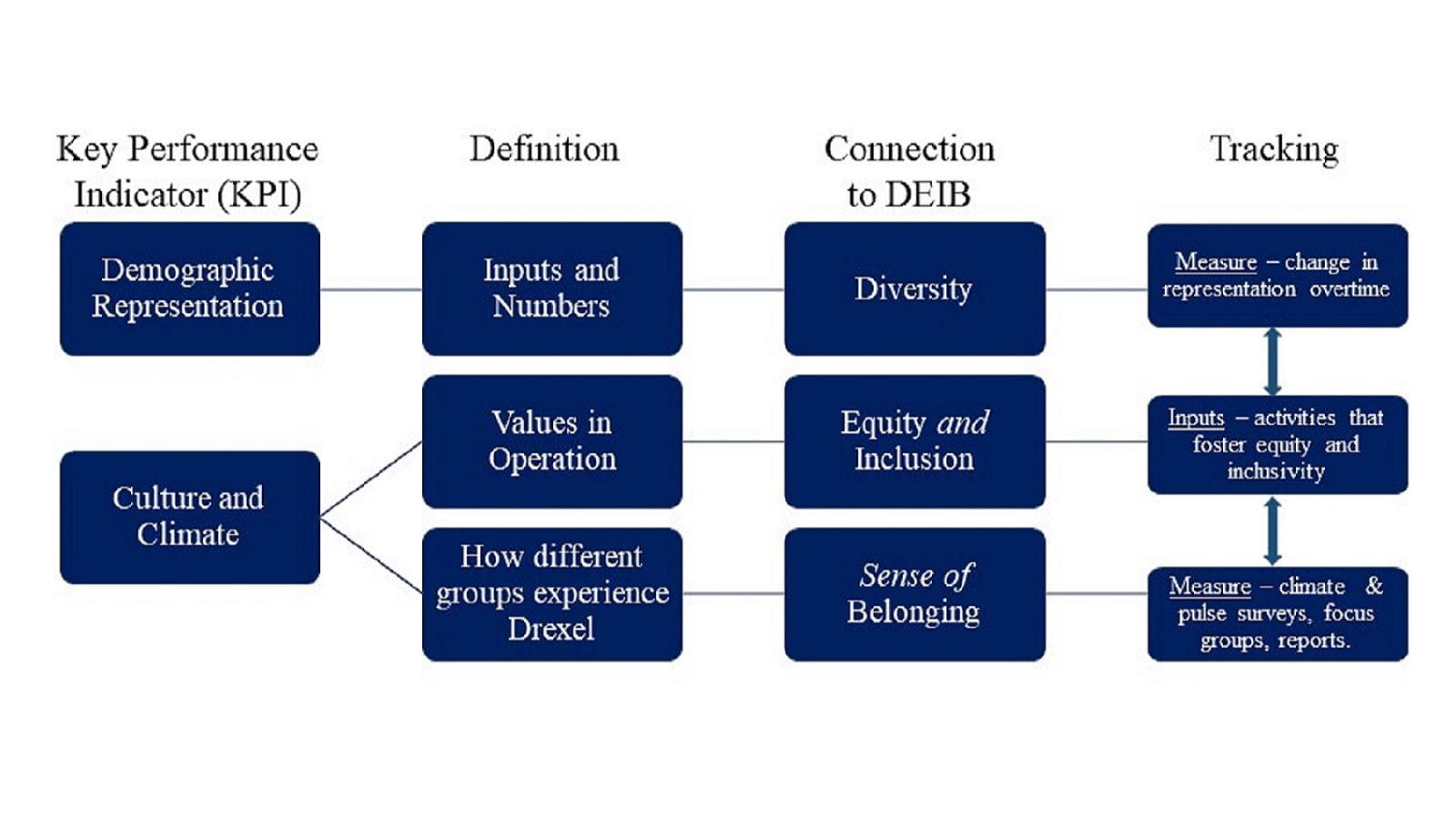Towards an Anti-Racist Drexel

In 2021, Drexel University’s Anti-Racism Task Force (ARTF) released its final report, Toward an Anti-Racist Drexel, which outlined 64 specific commitments the University pledged on its journey to become an anti-racist institution. The commitments are grouped into two macro themes: Demographic Representation, and Culture and Climate, which are then further grouped into six broad themes.
These commitments, detailed below, align with the Culture of Equity imperative, one of the six strategic imperatives and initiatives in the Drexel 2030 Strategic Plan.
Commitments: Demographic Representation
Many of the recommendations focused on an important outcome: increasing the representation of, and cultivating a sense of belonging for, Black/African American faculty, professional staff, and students at Drexel. These four ARTF committees focused explicitly on recruitment: i) Admissions and Prospective Students; ii) Graduate and Doctoral Student Life; iii) Faculty Recruitment and Retention; and iv) Professional Staff Recruitment and Retention. These recommendations are intended to increase representation by addressing potential implicit biases in systems, policies, planning groups, leaders and leadership groups, and in how we recruit and advance students, faculty and professional staff.
Commitments: Culture and Climate
While many recommendations addressed increasing representation, as discussed above, many more recommendations focused on Drexel's culture (values in operation including systems, policies, processes, and structures, and artifacts, both visible and invisible) and climate (how Black/African American and people of color experience the organization). These recommendations highlighted ways in which Drexel's culture and climate could be enhanced by centering the needs of Black people while simultaneously highlighting ways in which these recommendations would be beneficial to the entire University.
Recommendations in the culture and climate category are grouped into five main themes: fostering a culture of anti-racism through learning; policies and systems; adequate staffing and resource allocation; faculty diversity and curriculum revisions; and business practices and community engagement.
Monitoring Success
Drexel is committed to improving systems to monitor and publicly report representation data, and to regularly survey students, faculty, and professional staff to assess climate and examine trends. The University will also qualitatively assess yearly its progress toward each of the 64 commitments.


